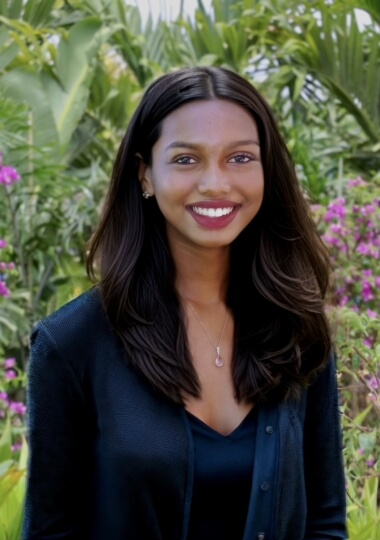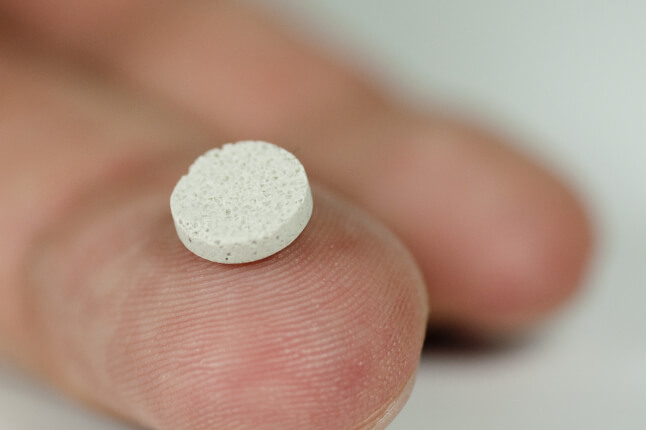News
Kelsey Bhola, A.B. '24
When back-to-back Category 5 hurricanes struck the U.S. Virgin Islands (USVI) in September 2017, Kelsey Bhola spent eight weeks without electricity, studying by lantern light for her standardized tests. The hurricanes also destroyed the USVI’s public health department and disease monitoring laboratory on the island of St. Croix, making it far more difficult to track the spread of diseases in the wake of the natural disaster.
“Mosquito-borne illnesses were always around, but when you have all the standing water after a storm, there’s an uptick in that,” said Bhola, a fourth-year biomedical engineering concentrator at the Harvard John A. Paulson School of Engineering and Applied Sciences. “Leptospira bacteria can be found in contaminated water, so there were human cases of Leptospirosis detected after the hurricanes.”
The USVI Department of Health has been slowly rebuilding its disease surveillance capabilities over the last six years, and Bhola wanted to help. She spent the summer helping the lab optimize and scale up its disease monitoring processes for a range of illnesses, including COVID-19, the flu, sexually transmitted diseases, mosquito-borne illnesses like dengue fever, and leptospirosis, a potentially fatal bacterial disease.
“The hurricanes were something that really brought us all close together as a community, so I really wanted a way to give back and help the community that raised me,” she said. “I know how far we’ve had to come from such a dark time, so to see the lab get up and running again, and then be able to help them take it to something more efficient, was really meaningful to me.”
Bhola had spent her previous summer researching diabetes at New York University, but this time she wanted to return home. The USVI Department of Labor launched a campaign last year encouraging college-age Virgin Islanders to look for career opportunities at home, and Bhola wanted to take part.
“They’re trying to change the idea that we have to leave to have successful careers,” she said. “There are a number of people who want to come home to work but don’t feel that they can, so the local government is trying to show that it’s possible.”
Bhola’s internship was a mix of data science, wet lab research, and administrative management. One day she’d do manual DNA or RNA extraction or test samples for the presence of a disease, and the next day she’d help develop lab procedures and protocols for future testing. She also helped calibrate and fine-tune new machines brought in to scale up how the lab monitors potential disease outbreaks.
“There was a data analysis portion of my work, and my Harvard experience 100 percent helped me with that, because I really had no coding experience before coming here,” she said. “In my biomedical engineering coursework, I’ve gotten some coding experience, which has been a really transferable skill. I’m also a lot more comfortable with quantitative methods because of Harvard, which gave me a lot of baseline skills and a really strong foundation.”
Bhola is now doing cancer research in the Laboratory for Cell and Tissue Engineering with David Mooney, Robert P. Pinkas Family Professor of Bioengineering at SEAS. Harvard helped her excel in her summer internship, and now she wants to continue building those skills back in Cambridge.
“Working in a lab and being able to do things like that in a place I’m so familiar with, it gave me a sense of confidence that I can do wet lab research,” she said. “I’m really excited. Cancer has had a specific impact on my family. This opportunity presented itself, and it feels like the right place for me.”
Topics: Bioengineering, Health / Medicine, Undergraduate Student Profile
Cutting-edge science delivered direct to your inbox.
Join the Harvard SEAS mailing list.
Press Contact
Matt Goisman | mgoisman@g.harvard.edu



